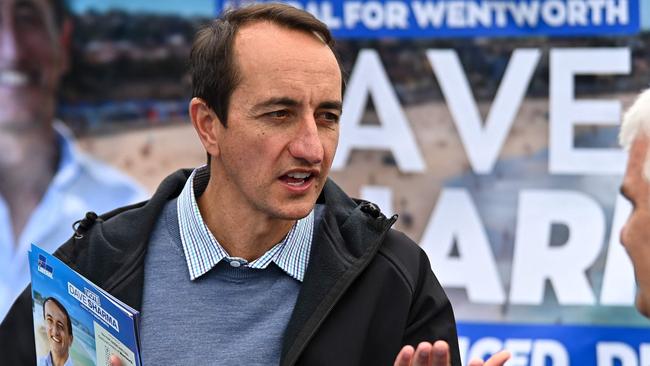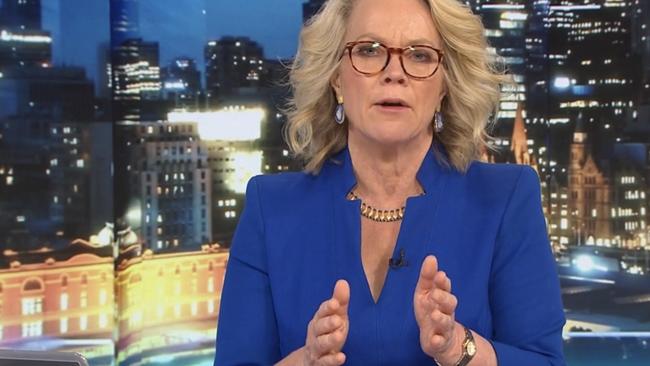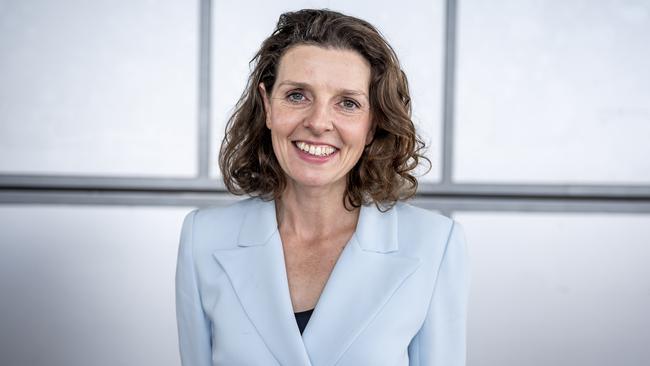
As of Sunday night, Albanese looked likely to win 76 seats and a clear majority. This will leave new teal and Greens MPs with little power, and would be a better outcome for the national interest than minority government.
Albanese was conciliatory in his victory speech on Saturday night, wanting to bring Australians together after a ferocious three-year denigration of Morrison.
Albanese really is a conciliator. After losing the 2013 election as deputy prime Minister under Kevin Rudd, Albo was one of the few senior Labor MPs to appear regularly on the old Network Ten Sunday morning version of the Bolt Report.
In government in 2010 and 2011, he and his then wife, former NSW deputy premier Carmel Tebbutt, maintained strong relations with this newspaper as it exposed support by the then Marrickville Council for the anti-Israel Boycott, Divestment, Sanctions movement. Albo and Tebbutt thought councils should stick to footpaths instead of trying to lead international change in the Middle East.
Yet Albanese, who proved weak on the economy during the campaign, will face enormous economic challenges with booming inflation and national debt heading to $1 trillion. He will need to resist the siren call of journalists already urging him to move further left, especially given Labor’s low primary vote.
At 11.15pm on Saturday, ABC 7.30 political editor Laura Tingle offered a couple of revealing observations. Tingle thought the Coalition’s loss was a rejection of the government’s “clever bugger” politics and a sign voters wanted integrity in their leaders. In the next breath, Tingle suggested Albanese ditch the climate policies he had taken to the election and adopt the more ambitious targets of the Greens and teals.

Labor’s Tanya Plibersek said she expected Albanese would stick to the targets that had just won him the election. How would Tingle’s suggestion improve political integrity?
Many journalists over-estimated Morrison’s campaigning abilities, cowered by his miracle win in 2019. Morrison did not increase the Coalition’s primary vote in the campaign. He had no positive message, spoke only about the economic risk of change and centred his re-election bid on himself despite clear evidence he was the government’s biggest problem.
Sky News political editor Andrew Clennell got it right at 5.20pm on Saturday before counting had started. He said Morrison was the problem and voters had seen too much of him. Clennell confessed later that even he had no real idea what Morrison’s economic plan was.
For lack of clear message and product differentiation, Morrison’s campaign rivalled the hopeless 2016 Turnbull re-election that lost the Coalition 14 seats. Yet the media, especially the ABC, mishandled Morrison.
A series of unbalanced, unfair and in part incorrect reports succeeded in giving women the idea that this once-married, religious family man with two daughters has a problem with women. Stubborn and a “bulldozer” he may be, but Morrison is not the man portrayed by the left media.
History will not be kind about the media’s personal denigration of Morrison or the failure of many to acknowledge the strength is his handling of the pandemic. Morrison was called a racist for shutting the border to China in early 2020 and bagged for closing international tourism soon after. Yet these were the two most important decisions of the pandemic.
With Josh Frydenberg, his implementation of JobKeeper in 2020 saved hundreds of thousands of jobs. It is testament to media prejudice that many of the journalists now criticising waste in JobKeeper and the size of the federal deficit were among the loudest supporters of calls by Albanese and his then Treasury spokesman Jim Chalmers for JobKeeper to be extended into last year.
History will be kind to Morrison over his management of the AUKUS defence pact with the US and UK.
Many at the national broadcaster should be ashamed of their criticism of coverage here and in other News Corp papers of the policies, funding and associations of the Climate 200-sponsored teal independents. These female candidates, all with the same livery and all campaigning against progressive Liberal men, were apparently above scrutiny, according to ABC Media Watch host Paul Barry.

Revealing about the teals was an interview by Sky News host Chris Kenny with successful Wentworth candidate Allegra Spender that ran on May 13, and is available on the Sky News website. Spender had no clue about emissions from China that are rising annually by more than Australia’s total emissions.
Pointing out both major parties were committed to net zero by 2050, Kenny asked how moving faster here would help the planet when emissions were rising in the rest of the world. Spender responded: “China has last year put in more offshore wind than the whole rest of the world. The world is transforming. China does not want to be dependent on our coal and gas. That is why they are decarbonising.”
As this column has pointed out several times, China is in fact lifting its domestic coal output for power generation by 300 million tonnes a year. Spender said even if China was lifting emissions Australia should cut them for economic reasons. Like many journalists who write about climate, Spender knows little about the economics of the issue.
Yet Spender has comfortably ousted sitting progressive Liberal Dave Sharma, a former ambassador to Israel and one of the brightest minds in the parliament.
The successful teal in the Melbourne seat of Kooyong, Monique Ryan, beat Frydenberg, considered a likely future Liberal leader. Ryan tweeted at 9.58pm Saturday: “It’s the vibe of the thing!” Indeed, more vibe than careful policy work.
Many in the media think the Liberals need to move left to wind back the teal seats. Perhaps, but this column argued last week the rise of wealthy post-material voters in the inner cities is probably unstoppable and as much a threat to Labor, via the Greens, as to the Liberals. The Liberals certainly need a hard think but they may find more of Robert Menzies’ forgotten people in the suburbs and regions than in teal and Greens seats that may never shift, and look like a permanent third political force.
The ABC was spinning left on the issue on Sunday morning. The consensus on the ABC Insiders couch was the Liberal party would need to go left to save itself. Host David Speers even suggested to Liberal moderate Simon Birmingham that the Coalition agreement with the Nationals should end in opposition.
An overseas visitor watching would never have guessed the Coalition has been in power for 20 of the past 26 years and 50 of the 77 years since World War II.
So who won the night for the media? Television coverage was good. I thought Kieran Gilbert and the Sky News team did well. Viewers who did not watch would be surprised at the number of Labor people involved in the broadcast.
Chris Uhlmann was incisive on Nine and Leigh Sales did well on ABC, despite some inane commentary from other ABC staff, political editor Andrew Probyn excepted.






The media did well trying to expose flaws in the election campaigns of the major parties during the past six weeks but misunderstood the nature of Anthony Albanese, misjudged the campaigning skills of Scott Morrison and – in the left media – rejected much-needed scrutiny of teal independents.